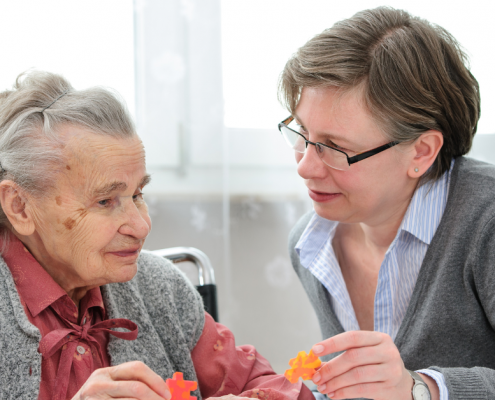
Is Alzheimer’s and Dementia the Same Thing?
Many families ask if Alzheimer’s and dementia are the same thing—and it’s a very typical question. Knowing the difference helps you make sense of symptoms, speak confidently with health professionals, and plan care that truly supports dignity and independence at home.

Cognitive Decline in the Elderly: Recognising the Signs and Finding the Right Support
It's never easy to watch a loved one struggle with memory lapses or growing confusion—but for many families, these early signs of cognitive decline in the elderly are an all-too-common reality. Understanding what's happening, knowing what to expect, and finding the proper support can make all the difference. This article explores the causes and symptoms of cognitive decline, practical ways to slow memory loss, and how live-in care can offer relief, safety, and companionship for your loved one—and peace of mind for you.

Spotting Early Signs of Health Issues in Seniors
Not all changes in older adults are just part of growing older. While some may be normal signs of ageing at 70, others can be early warning signals of serious health issues. Whether you're a family member or a live-in carer, knowing how to spot the signs of deterioration in elderly individuals can make a huge difference. Early detection leads to quicker treatment, better outcomes, and a higher quality of life for your loved one.

What Are the Different Types of Live-In Care?
Discover how live-in care offers personalised, comfortable alternatives to care homes, enabling you or your loved ones to receive tailored support right at home. Learn about the different live-in care options and how Veritas Care can help you find the ideal self-employed carer to suit your unique needs.

Early Symptoms of Dementia: What to Look for and When to Seek Help
Dementia is a progressive condition that affects memory, thinking, and the ability to carry out daily tasks. Recognizing the early symptoms of dementia can be challenging, as they often appear gradually and may be mistaken for normal ageing. However, early detection is crucial, as it allows individuals to seek medical advice, plan for the future, and explore potential treatments that may help slow progression.

Caring for a Loved One with Alzheimer’s. Live-In Care Support
Caring for a loved one with Alzheimer’s can be emotionally and physically overwhelming. As memory fades and daily tasks become challenging, families often struggle to provide the constant care their loved ones need. Live-in carers offer a compassionate and professional solution, ensuring individuals remain safe, engaged, and comfortable in their homes. In this article, we explore how live-in Alzheimer’s care can improve the well-being of both patients and their families.

Understanding Dementia: A Guide for Families Considering Live-In Care
Dementia is a complex condition that affects millions of people worldwide, touching not only those diagnosed but also their families and caregivers. Recognizing its impact is the first step toward finding the right support system.

What To Do When A Family Member Is Diagnosed With Dementia – How to Cope and Help
Dementia and Alzheimer's disease are the scourge of our time. It is thus useful to learn the basics of caring for someone with dementia and about dementia support for family members. And this is what you will learn from this article.

Top Principles Of Suitable Eating And The Prevention Of Alzheimer’s disease and dementia
According to research, a properly composed diet enriched with the appropriate minerals and vitamins can be a way to prevent senile dementia and Alzheimer's disease. Therefore, be sure to read this article and find out the relationship between dementia and diet and learn the most influential foods to prevent dementia.

Top Sensory Activities for Dementia Patients
Dementia cannot be cured, but it can be significantly inhibited with sensory stimulation, especially carried out by a specialist in live-in dementia care. That's why today we are recommending the best sensory activities for dementia patients so that you can introduce them to your loved ones with dementia.









